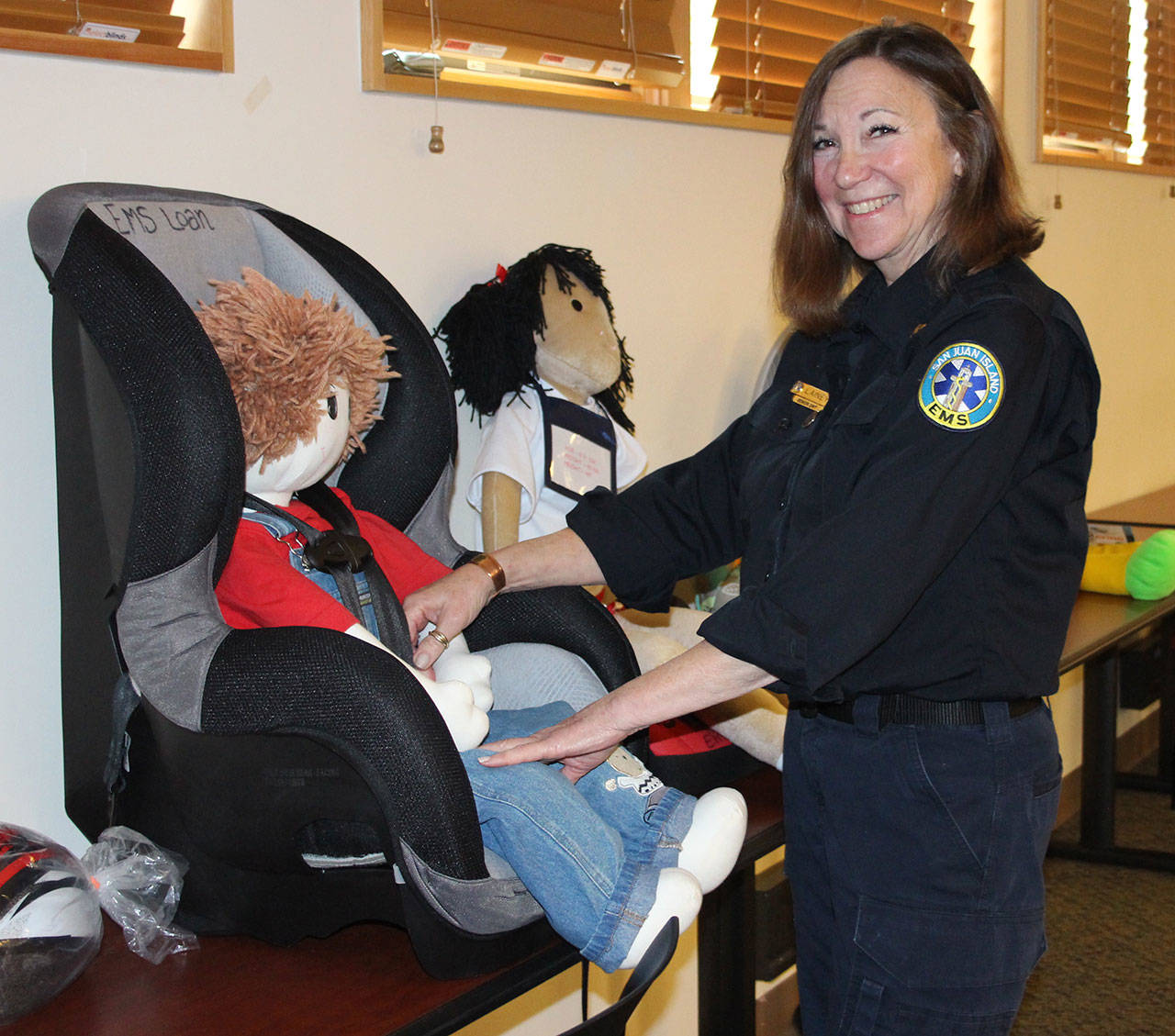When car seat safety recommendations change, islanders can turn to San Juan Island Emergency Medical Services for advice.
Last month, American Academy of Pediatrics staff eliminated a recommendation to turn car seats to face the front of the vehicle until children are 2 years old. Now, the AAP staff suggest children stay in rear-facing car seats until they reach the seat’s maximum weight and height requirement, which could be past age 2.
San Juan Island EMS has the county’s only two certified car seat technicians, who help adults install the equipment and navigate recommendations and rules.
Lainey Volk, a director at San Juan Island EMS, said she helps about nine people a year to properly use and install car seats. Once, she saw a child securely fastened in the seat, but the seat was not attached to the vehicle. Another time, a parent didn’t have the seat adjusted to the child’s correct height.
“Just handing someone a car seat [that] they don’t know how to use doesn’t necessarily protect the child,” said Volk. “Look at how many instructions come with anything; few of us read all of them.”
According to the AAP, applying the correct car seat procedures lowers the risk of death or serious injury by more than 70 percent. Labels on car seats, as well as their instruction manuals, display directions and height and weight limits.
To properly install the seat with EMS staff, Volk recommends parents bring the car seat, the vehicle it will be placed in and the child who will use it. Appointments take about 20 minutes on average.
While there is no known county location to buy car seats, San Juan Island EMS gives out the equipment by donation.
So far, in 2018, department staff have given out 31 car seats. They also offer a few for islanders to borrow.
Each year, Volk applies for up to $5,000 in grants to purchase the equipment and one car seat can be supplied by EMS, per child.
Volk said she tries to keep three types of car seats in stock: one that is rear facing for infants who range from about 5-22 pounds; one that can be installed forward or rear facing that serves infants through children who weigh up to 65 pounds; and a booster, which has no weight requirement, but positions children higher in the seat so the vehicle’s seat belts properly work for them.
According to Micki Nichols, with Orcas Fire and Rescue, their department also has three types of car seats community members can borrow: rear-facing, forward-facing and booster. San Juan County Health and Community Services staff are unaware of additional options on Lopez or Shaw.
The AAP recommendations are more specific than Washington state law. The law requires a child to be restrained in a “child restraint system” until he or she has reached 4 feet 9 inches or age 8, as well as for children under 13 to ride in the back seat.
In addition to car seats, San Juan Island EMS staff also dispense bicycle helmets for all ages, as well as loaner, youth-size life jackets at the Port of Friday Harbor and Roche Harbor.
“All of these injury prevention items not only keep you safe, but it makes our job better because someone is protected and less likely to have a severe problem,” said Volk.
To contribute to these safety campaigns, donate to the San Juan Island EMT Association at P.O. Box 1324, Friday Harbor, WA 98250. Contributors can specify which campaign they’d like to donate to, or injury prevention or the organization, overall.
Those interested in a car seat or one-on-one tutorial to use the equipment, call SJI EMS at 360-378-5152 to make an appointment.




